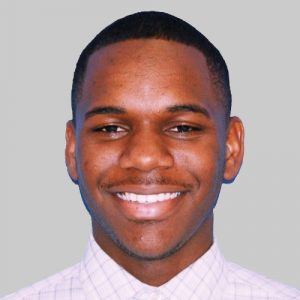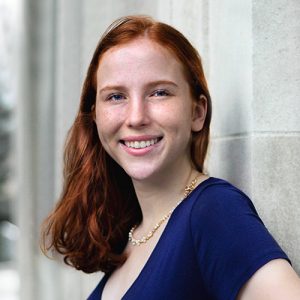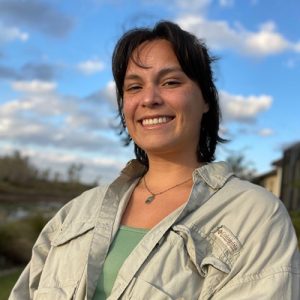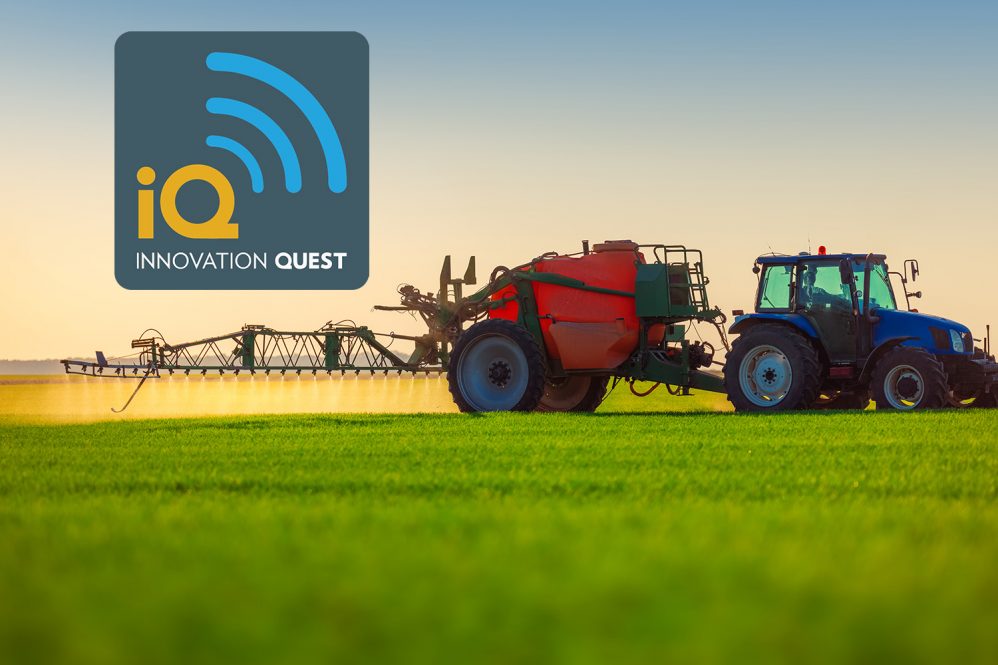
From the time he was a young child, Laron Burrows always knew he would be an entrepreneur.
“In the third grade I sold baseball cards and trinkets,” said Burrows, a Ph.D. candidate in chemical engineering. “At age 12, I was developing a way to remove oil from seawater. I always thought science and engineering innovations provided great opportunities for entrepreneurship.”
Burrow’s ambition has only grown since then. Today his project, called Andros, aims to address one of the dirtiest chemical processes in the world, ammonia production. Ammonia synthesis reactors use high pressure and high temperatures to produce ammonia, often for nitrogen-based fertilizers.
These reactors, which haven’t changed much in 100 years, are fed by natural gas in a process that creates 2 percent of the Earth’s CO2 emissions. Burrows has developed a new reactor, based on the principle of chemical looping, that is smaller, more efficient, less expensive, and most importantly produces no CO2 emissions.
He is the top finalist in the University’s 2023 Innovation Quest (iQ) entrepreneurship competition. Although the three winning companies are vastly different, they all address sustainability in some capacity.
In addition to dividing $30,000 in award money, the finalists will move on to the iQ Summer InQbator, the second phase of the entrepreneurship development program. They will be joined by six other top teams.
Helping Eliminate Catalytic Converter Theft

If senior Alicia Sleight is successful with her startup, Particle-N, catalytic converter theft will be a thing of the past.
The company is developing a cost-effective, environmentally sustainable material that will reduce the amount of precious metal in converters, and other equipment, by 70 percent. Using core-shell technology, precious metals can coat an inexpensive inner core.
“Everyone who hears about this realizes the importance of the product we’re developing and the role it can play in eliminating theft. There’s great market potential for it,” she said. “We have amazing technology on our hands.”
Other applications for this technology include solar panels, oil refinement, pharmaceuticals and EV batteries, she said. The startup’s next step is working on a patent, establishing a limited-liability company, and creating a website and branding materials.
Sleight has been involved in UConn’s Werth Institute for Entrepreneurship and Innovation and always had an interest in entrepreneurship but couldn’t find the right concept. In an entrepreneurship class, she met Al Kasani, a Ph.D. candidate in chemical engineering, who was working on the core-shell technology, and he was looking to grow a team.
All of Particle-N’s prototypes are complete. The project has already received $29,000 in funding since January, including $15,000 from the Connecticut Center for Entrepreneurship and Innovation’s Summer Fellowship Accelerator, and has won several entrepreneurship competitions both at UConn and elsewhere.
“One of the great things about UConn is the connections you make,” said Sleight, who is majoring in mechanical engineering and biomedical engineering. “The Werth Institute and the iQ program were a great help for me in advancing my interests; and also for Al who had the technology but might not have known where to go with it.”
A Better Surf Board, Using Mushrooms

Amelia Martin, founder of Project Clean Surf, the third-place winner, is experimenting with making the core of a surfboard out of mycelium, the root-like structure of mushrooms.
On a trip to the beach in Haiti in early 2019, she was sickened by the amount of trash and debris clogging the water. It was an image she couldn’t get out of her mind.
“It ignited something inside me. I never felt so strongly about anything in my life,” said Martin, a senior majoring in environmental studies. “Very few people in Haiti can swim and I thought ‘Why would they want to learn to swim in a pile of wet trash?'”
An amateur surfer—who enjoys surfing in Rhode Island—she realized she couldn’t replace the resin or fiberglass, but could replace the core of the board, which is currently made of Styrofoam.
Project Clean Surf, is experimenting with replacing the core of a surfboard using mushrooms (mycelium), grown in her basement, as a potential core substance, after finding recycled plastic wouldn’t work. Encouraged by Professor Carol Atkinson-Palombo from the department of geography, and Melissa Berkey, in undergraduate research, she applied to iQ.
“I absolutely never would have seen myself as an entrepreneur. My parents have their own finance business. I’m good with money and with people and when my Dad suggested I take over that business, I said, “Absolutely not! I want to be outdoors, maybe be a farmer, and work with plants and animals.”
Martin hopes to soon expand the Project Clean Surf team and is looking for engineers to help with prototyping; and she wants to create an LLC. This past semester was spent participating in the Connecticut Center for Entrepreneurship and Innovation’s Traction and Get Seeded programs, learning about her customer segments and working on her pitch. She’s been doing all of it on top of her classes and planning for graduation.
“It all happened so fast. As soon as I decided to apply and start a business, it has been non-stop,” she said. She also has ideas for other surf-related products, as well, but her biggest satisfaction comes from learning to plan and run a business. “Until this year, I didn’t think it was a viable path, and I thought I would have instead had to work in a lab somewhere.”
Competition is a Game-Changer for Young Entrepreneurs
Since the iQ competition debuted at UConn in 2012, some 2,500 students have participated, drawing students from 82 majors across the university. This year’s participants continue to impress, said alumnus and sponsor Keith Fox ’80, who brought the program to UConn.
He said the competition draws young people, who are passionate about solving some of society’s most pressing problems. The iQ program teaches them the creativity, innovation, and entrepreneurial skills to be successful, as well as the resilience to continue on when the road gets bumpy.
“These students are truly motivational and a group of people anyone would be proud to be affiliated with,” Fox said.
Professor Rich Dino, Director of the iQ program, said UConn’s investment in innovation and entrepreneurship over the last few decades is now paying off.
“The caliber of students recruited into UConn, as well as the innovation and entrepreneurship ecosystem, continues to get better and better,” Dino said. “It is at the point where student innovation here is world class.”
Many of the students have been innovators since middle school and by the time they arrive at UConn their level of sophistication is extraordinary and enables us to help them move their ideas to market quickly.
“Student innovation at UConn is relentless, but also extremely impactful,” he said.
Focus On Your Idea, Do the Best You Can
Martin said she would encourage other students to pursue the iQ program. She said initially she was reluctant to compete against startups with lofty goals.
“I thought my project wasn’t up to standards. I thought I had no shot at placing,” she said. “If I could tell other students one thing it would be to just do it. I’ve beat insanely good projects that use words I can’t even pronounce! If you participate in iQ, you’ll learn so much. Focus on your own ideas and do the best you can.”
Burrows also praised the program’s helpfulness.
“The mentor meetings that we had were invaluable,” he said. “They offered a different perspective. I’m ‘deep in the weeds’ with this project and their questions helped recalibrate my mind.”
Burrows credits his Ph.D. adviser, professor George Bollas, an expert in chemical looping, who offered him several projects to work on when Burrows first came to UConn. Together they have developed the reactor and filed a provisional patent application. Now Burrows is working on customer discovery.
“It’s been three years, and it is much harder than I thought to solve a world problem in three years!,” Burrows said.



